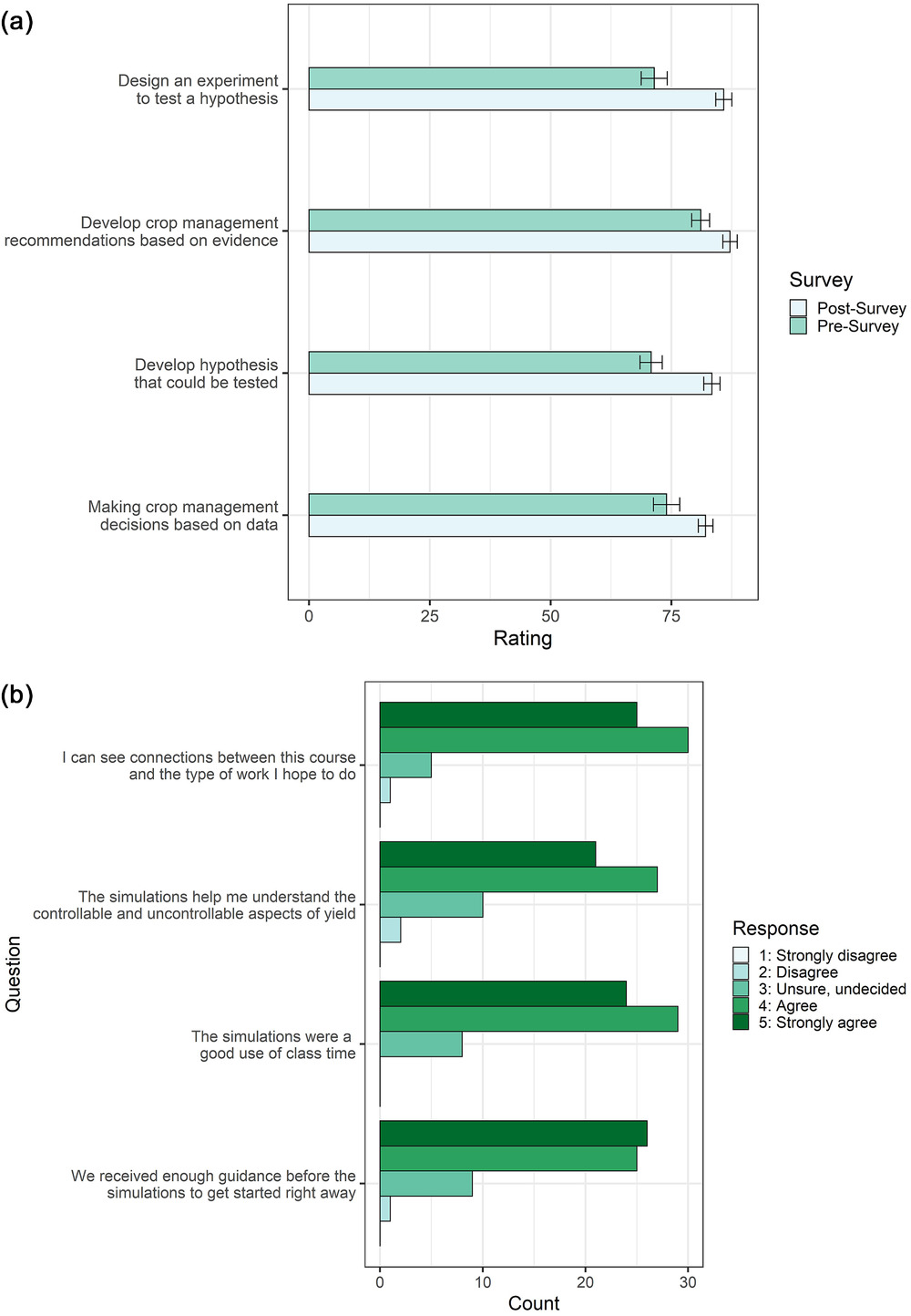APSIM for undergraduate student teaching
The team at University of Nebraska-Lincoln have utilized APSIM in a high enrolment undergraduate crop management course. They included asynchronous video content and four synchronous course periods with activities related to crop planting dates, water cycling with different crop rotations, fertilizer impacts on yield and environment, as well as a competition activity to optimize profit with different management considerations. In their assessments, they found that students increased knowledge and confidence in how to use the software, awareness of related simulation platforms, how to make data-driven crop management decisions as well as how to develop and test hypotheses. Students reported learning a range of skills, including how to utilize the software to understanding the impact of crop management on yield, and specifically noted that these skills would be beneficial for future careers in farming, consulting, business, or policy. Additionally, students reported challenges such as difficulties with data interpretation and software use. For successful implementation of similar modules, they recommend providing students with a step-by-step activity manual, ensuring adequate teaching team support, and developing a supportive classroom environment. Their results demonstrate that farm simulation platforms can be successfully implemented into undergraduate courses to support students in navigating technologies beneficial for future careers.
The full article can be accessed here.

(a) Student ratings of confidence, on a scale of 1–100 (“How confident do you feel in the following knowledge and skill areas? Answer with a percentage from 0 to 100%”), on the pre- and post-surveys in regards to skills related to the platform (farm simulation platform, FSP) activities (n = 61 students). All responses were statistically different in the pre- and post-surveys at the p < .05 level.
(b) Students responses on the post survey (n = 61) to Likert scale questions regarding the FSP activities
